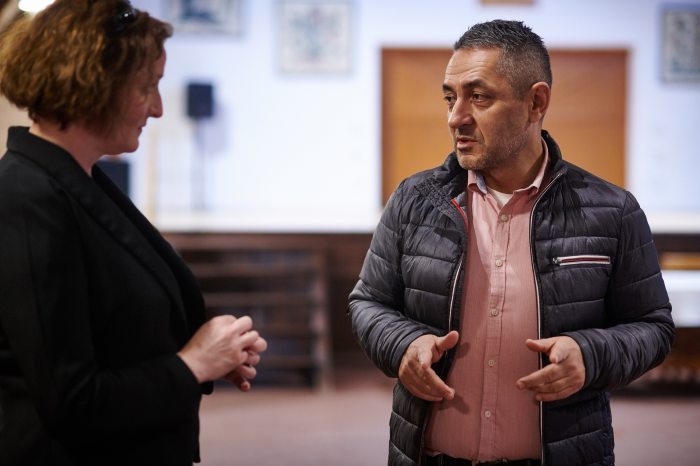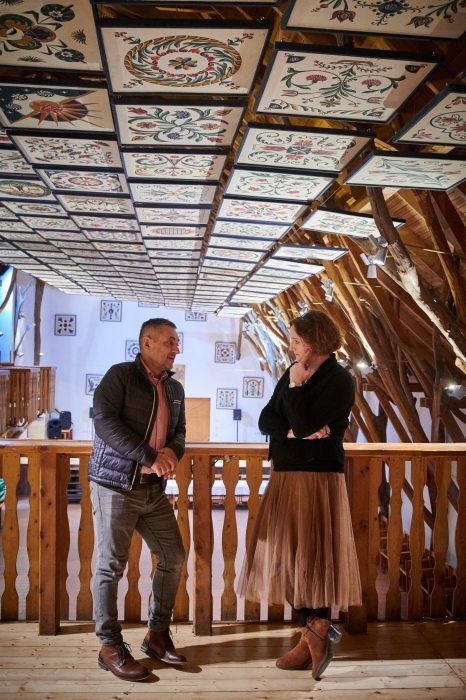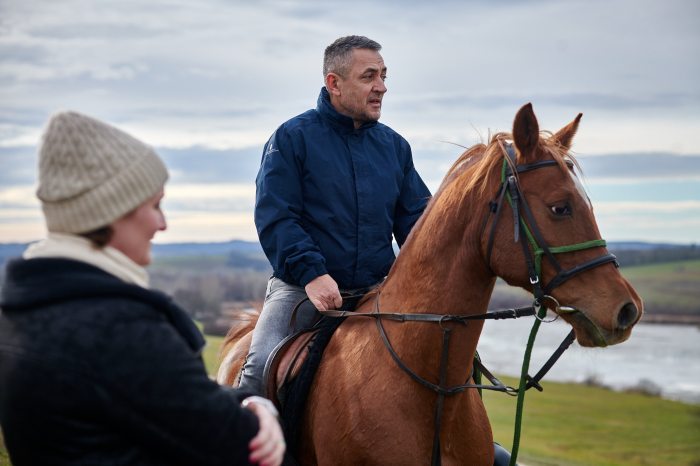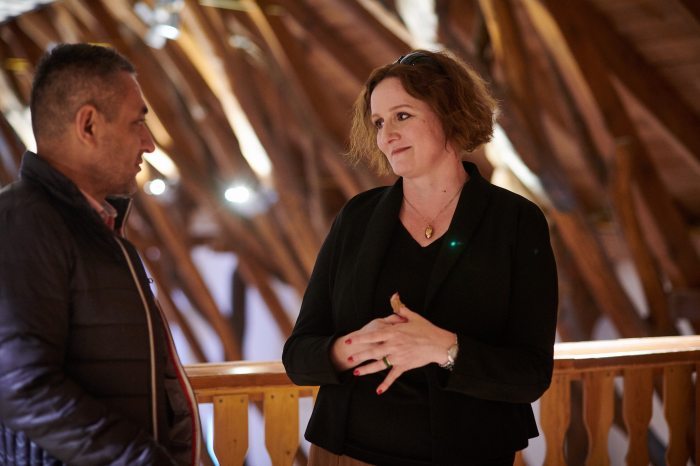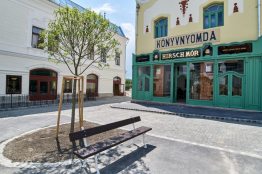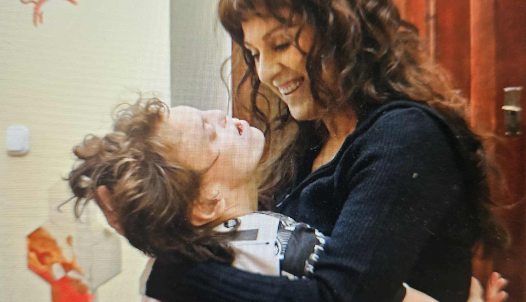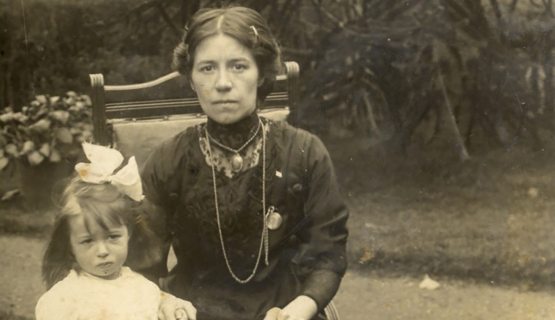Healing from the national trauma – an interview with János Árpád Potápi, Secretary of State
The Public Treasures series presents month by month the areas that we see as valuable, our common treasure, worthy of preservation and transmission. Hungarian National Policy is one of them. The term is abstract, but in reality, it is a practical program of action, backed by an undoubtedly strong intellectual background. First and foremost, national policy is a way of thinking: it is about thinking not in terms of a country bounded by physical borders, but in terms of the much more complex interconnected spiritual and cultural community we call a nation. A nation is made up of Hungarian communities living beyond our borders, but it is also made up of minorities of other nationalities living within our borders.
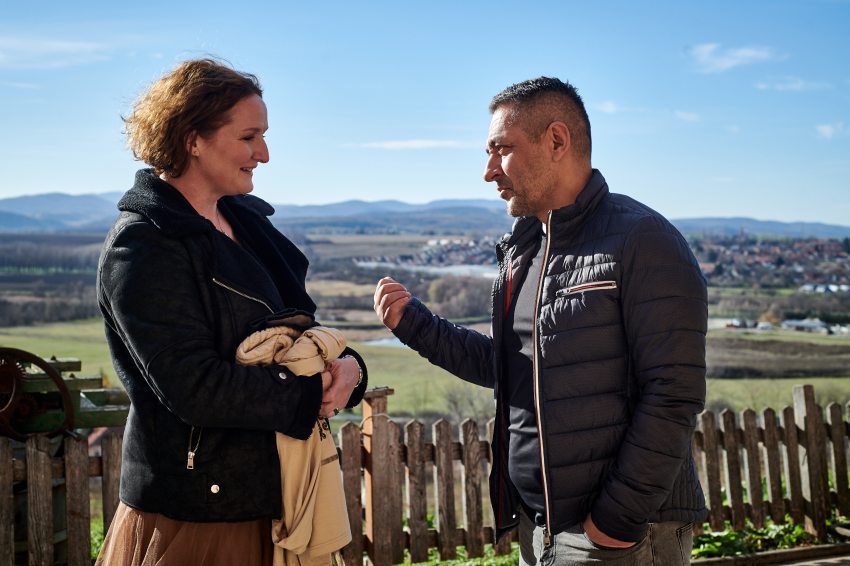
We talk to János Árpád János Potápi, Secretary of State for National Policy, in Kakasd, Bonyhád, and Mecseknádasd - he takes me on a tour of his favourite local landscapes with a real local patriot bias. This area is a good example of the subjective concept of ‘nation’ mentioned above: during the reign of Maria Theresa, German-speaking settlers arrived here, during the traumas of the 20th century, Szekler families from Bukovina found a home here, and then Hungarians from the Highlands arrived. Kakasd's famous village hall, designed by Imre Makovecz, reflects this community: one of its towers is in the tradition of old Swabian architecture, while the other is modelled on the wooden churches of Transylvania. The five Szekler gates in front of it symbolize the five Szekler villages of Bukovina, from which the ancestors of the Szekler community living here today fled: Istensegíts, Fogadjisten, Hadikfalva, Andrásfalva, and Józseffalva, who first came to Bácska and then, in April 1945, to South Transdanubia, including Kakasd. "Perhaps our grandparents had confidence in the Tolna region because this hilly and varied landscape reminded them of Bukovina, the landscapes of their homeland," says Árpád János Potápi, himself a Szekler from Bukovina. So the State Secretary responsible for the national policy comes from a multi-ethnic and complex community.
This visceral knowledge is indeed needed for this work because as complex as the situation of the ethnic groups in this one district is, it is just as complex in the whole Carpathian Basin.
What do nationalities have in common? - I ask the Secretary of State. "The ordeals of the twentieth century have affected the whole of Europe, and the two world wars and the subsequent peace treaties have redrawn the map, especially in Central Europe. It was the time when the saying "Enjoy the war, because the peace will be much worse" was widespread. Think of Trianon, that is indeed what Hungarians, too experienced. The punishments, perceived as unjustly severe, also destroyed the mental health of the people living here, and affected families and ethnic communities. I live and work in a district where, until 1945, there was a predominantly German-speaking population. They were deported in large numbers and then replaced by other ethnic groups who were also driven from their homes. To our area, mainly Szeklers from Bukovina and a small number from Transylvania came, and today there are about fifteen thousand of them. Then came the Hungarians from the Highlands (“Felvidék”), Slovakia, who had the only sin of being born Hungarian. The Czechoslovakian martyr-politician János Esterházy asked the Czech criminal judge during the show trial against him what his real crime was - and the judge's honest answer will ring in all our ears: that you are Hungarian.
This policy was bad for everyone: those who had to leave, those who stayed, and those who were separated. Nationality ratios were broken. This is what I grew up with. It was decisive the way my grandparents told stories about what it was like in Bukovina, how they lived, what would have happened if... All families can tell of a similar fate, whether they were Szekler or Swabian. This trauma affects all of our families. It would be nonsense to pretend that we should not do something with it, that we should not heal this trauma. In fact, this is what today's Hungarian National Policy is all about: healing from the trauma, strengthening Hungarian identity and Hungarian self-esteem, primarily in the Carpathian Basin, but also everywhere where Hungarian communities live."
The Secretary of State does not fear primarily for the countless programs, investments, and subsidies that Hungarian communities abroad have received in the past decade, nor does he fear for the abolition of strategically important institutions such as dual citizenship - or not primarily of this. What is really important, and what we must not destroy, is the sense of belonging that has been the result of all these nation-building and nation-strengthening measures among the Hungarian communities living apart.
Today, after a whole century, Hungary is once again thinking in terms of the Carpathian Basin area, moving beyond the fact that the borders of the state are inalterably not in favour of the Hungarian people, and looking for areas where there is some degree of leeway.
The territory of a country can be fragmented, but a nation is connected mentally, culturally, linguistically and historically. These ties may have become loosened over a hundred years, but once you look for them in an organised way, you’ll find that they are strong, tight and resilient.
János Árpád Potápi does not consider the estimate of fifteen million Hungarians living in the world to be unrealistic. In the Carpathian Basin, there are still two and a half million Hungarians living outside the borders and the same number in the diaspora. Some of them no longer speak Hungarian, but they know their roots, keep track of their family ancestors, and still cook Hungarian food at home on holidays - in short, they have family and cultural ties to the Hungarian nation. "It is good that we have given these people the opportunity of dual citizenship, thus strengthening the ties between them and Hungary." In total, more than a million Hungarians living beyond our borders have been granted citizenship in recent years, some of whom also regularly exercise their right to vote. Most of them have taken it up on an emotional basis, not for perceived economic benefits or social support.
The State Secretariat's staff studied the national policies of many countries before developing ours. They looked for good examples that could be adapted. Today, we have reached the point where others are taking examples from Hungarian programs. The twentieth century has not only ravaged our nation; everyone has a job to do, to a greater or lesser extent. "Perhaps the strongest national policy program is that of the Jewish people, whatever difficulties they have faced, we see that they have stuck together and looked out for each other, they have pulled together. After two thousand years, they were able to create a country, a modern state-building nation, it's almost unbelievable. But it works well for the Irish. There are four million Irish people in Ireland and another seventy million everywhere else. The number of higher-generation Irish people, scattered around the world, is so numerous that in the USA, for example, they are a power to reckon with in the presidential election. It is also worth looking at the national politics of Armenians and Russians."
Strengthening national identity in minorities can be a life-saver, says János Árpád Potápi. He cites as a good example the Hungarians of Vojvodina, who 25-30 years ago were the hardest hit.
"The war, the post-war conditions, bombed factories, devastation, hit them hard too. They had to recover from that situation, economically, morally, and politically. The Hungarians handled this crisis better because of their solidarity and national identity. Now the Hungarians of Transcarpathia (Ukraine) are in a similarly difficult situation. They are victims of a great power political game that is not about them. Although Transcarpathia was indeed part of the Hungarian state for 1100 years, Hungarian history began here, and it is not even a separate historical region, having been named less than a hundred years ago, the physical existence of the 150 thousand Hungarians living here is now at risk. On the other hand, where there are no problems, where there is prosperity, and where there is peaceful coexistence with the majority nation of the country, assimilation is often faster. For example, in the area around the Mura River (present-day Slovenia), where we realized too late that bilingual schools are not a good solution, they accelerate assimilation."
We are talking in the first days of December, and we cannot help but recall the shocking day, 17 years ago, on 5 December, the day of the referendum on dual citizenship. Hungarians living beyond our borders had good reason to feel denied by some voters and by the government campaigning against dual citizenship. Secondary shame has haunted us ever since. But, the State Secretary adds, it may have been precisely what we needed to start thinking very strongly about our national policy. "We got a kick in the head. Is that really what we want? That's when we decided to radically oppose this idea. If we get the chance - and we did! - we will make a national policy that will remedy both this recent trauma and the deep-rooted, century-old wounds. So that Hungarians beyond our borders can feel that, despite all this, we are one nation. I believe that we have succeeded. I am particularly proud of the Unlimited program because it is one of the guarantees of a long-term solution. Almost every seventh-grade child in the program will spend 4-5 days in one of the Hungarian regions beyond the border."
"They see and hear that there are Hungarians living in distant regions, they make friends and keep in touch with them - we hope that these children will grow up to be adults who will no longer call the Szeklers Romanian or think of the Hungarians of the Highlands as Slovaks."
The first of December, which Romanians celebrate as the birthday of modern Romania, is not a day we like to remember. But there is one thing that Árpád Potápi does mention in connection with this day: our own cowering. It is a well-known fact from history books that the Hungarian railway company MÁV carried the participants to this particular Romanian National Assembly in Gyulafehérvár free of charge with the permission of Hungarian Prime Minister Mihály Károlyi. "We are the most permissive and accepting people. A self-respecting state does not support those who want to break away!"
Instead, we remember Mihály Vörösmarty, whose birthday is on the first of December. He was the private teacher of the Perczel family in Bonyhád, his muse Etelka was also a Perczel girl, and we visit the family graves and the statue of the poet in Bonyhád. “Let fortune bless or fortune curse” (a line from the national Appeal, written by Mihály Vörösmarty, translated by Wattson Kirkconnel) is a self-fulfilling prophecy hovering over our sense of history. Although the tasks are always new and every generation has its own struggles, the last ten years have been a time of blessing in national politics.
Képmás magazine has launched a new series called Public Treasure, in which Kata Molnár-Bánffy, the publisher of Képmás, talked to dedicated people whose successful work can be of interest to many, and is a Public Treasure, as the title of the series suggests: a common issue, something we want to take care of.
